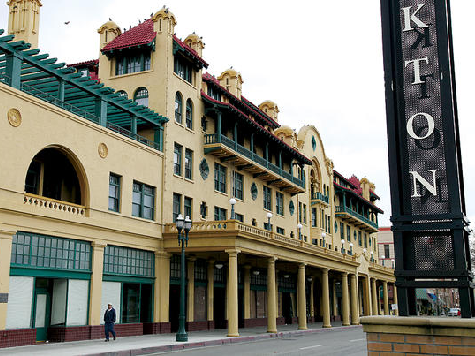
U.S. Judge Christopher Klein, who is presiding over the Stockton city bankruptcy case, said on May 13th he will question officials from the California Employees’ Retirement System (CalPERS) in a bench trial that will last until Thursday, May 15th to determine whether the nation’s largest pension fund can be forced to take losses in the municipal bankruptcy case along with other creditors.
Stockton in its opening statements asked the federal bankruptcy judge to approve the plan that would reorganize more than $900 million in long-term debt. The trial involves objections to fairness and feasibility of the City of Stockton’s plan to exit Chapter 9 bankruptcy protection. Marc Levinson, an attorney for the city of Stockton, stated that the city had reached deals with all of its major creditors, except for Franklin Templeton Investments, which has taken Stockton to trial.
Franklin Templeton’s attorney, James Johnston, replied that the mutual fund investment firm was only offered less than 1 cent on the dollar for its loan to the City. In court documents, Franklin argued the city’s plan – which would give Franklin $94,000 to cover a $35.1 million loan – discriminates against it by treating other bondholders more favorably. While others are expected to receive 52% to 100% of their claims and forgo addressing pension liabilities, Franklin is looking at one-quarter of one percent.
Johnson stated, “The city seeks to cram down a plan of adjustment that essentially provides Franklin with no recovery whatsoever,” the creditor wrote in February. Stockton countered that Franklin’s suggestion that it cut pension benefits would terminate its relationship with CalPERS and leave it with a $1.6 billion termination fee.
The City of Stockton is seeking to treat pension claims that are managed by the California Public Employees’ Retirement System as superior in repayment priority and force other creditors to absorb steep losses. CalPERS contends its protected status is guaranteed under law, and Stockton, which declared bankruptcy nearly two years ago, has not tried to impose any losses on the $285.2 billion pension fund.
The trial took a dramatic turn on Monday when U.S. Bankruptcy Court Judge Christopher Klein said, “We have a festering sore here. We got to get in there and excise it and figure out what the story is. Maybe CalPERS is correct, maybe not.” His comments indicated that he is leaning toward deeming the pension claims as “garden variety creditors,” a term he used last year that indicated CalPERS was an unsecured creditor and could suffer a “haircut” in bankruptcy.
A decision that CalPERS’ dollar recovery could be “impaired” has wide-ranging implications for public employee pensions across the country. It would come as public employee pension funds of many municipalities and states are considered grossly insolvent. In December, U.S. Bankruptcy Court Judge Steven Rhodes ruled in the city of Detroit bankruptcy that pension benefits may be legally reduced in bankruptcy, despite the State of Michigan’s constitutional protection of public pensions.
The city of 300,000 declared bankruptcy in June 2012, after depleting its reserves as property tax revenue plunged. It has slashed its workforce by 30% and cut its budget by $90 million. The city’s plan also eliminates about $1 billion worth of health benefits.
***
The author welcomes feedback and will respond to comments by readers.

COMMENTS
Please let us know if you're having issues with commenting.